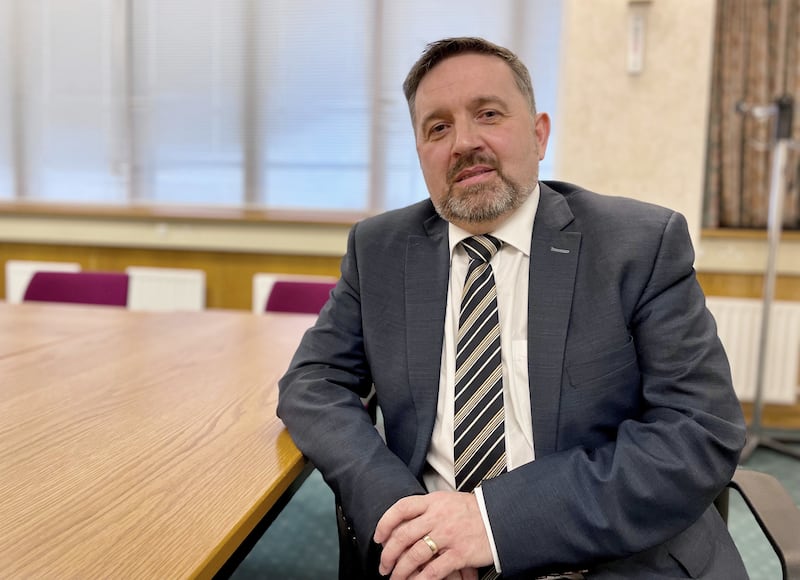A leading health charity has said more people will die or suffer from disabilities without reform of stroke services in Northern Ireland.
Neil Johnston from NI Chest Heart and Stroke made the comments following a meeting of the Stormont All Party Group on Stroke on Monday.
“Delaying stroke reform means that people die who need not have died and many people end up having to live with much greater levels of disability than should have been the case,” he said.
“Improving stroke services has been under discussion for five years and it is long past time for getting on with change.”
- Comedian Gene Fitzpatrick urging support for health charity that ‘gave me so much hope’ after devastating strokeOpens in new window
- Children’s waiting times in Northern Ireland have become ‘out of control’ warn medicsOpens in new window
- Northern Ireland GPs ‘struggling to the point of collapse’ with calls for urgent action to stabilise systemOpens in new window
Acknowledging the constant challenges facing the health service and the disruption of the pandemic, he said it was not about money, but to showing leadership.
He said small improvements, such as a thrombectomy service, had been “an outstanding example” of changes that had a huge impact for patients.
“We now need to make the big decisions on where our centres of excellence are going to be and put plans in place to ensure we can deliver them over time,” he said.
“Everyone knows that we cannot achieve everything overnight and that resources are stretched but what we are currently seeing is simply prevarication and delay.”

Health minister Robin Swann attended the meeting and said that while important progress had been made since the publication of an Action Plan in 2022, further progress would be limited without more funding.
Advances in technology, including five hospitals using Artificial Intelligence to assist with scans were highlighted along with a thrombolysis audit and a costed model to expand a thrombectomy service to 24/7.
“There remains much more to be done to fully deliver on the priorities set out in the Action Plan and I must be clear, however, that there are some priorities which cannot be progressed much further without additional funding,” he said.
“This includes the expansion of thrombectomy to a 24/7 service which we estimate requires additional funding of just over £5m.
“There is also a clear need for increased investment in rehabilitation and long-term support services for stroke survivors.
“Be assured that we will continue to make every effort to drive improvement by making best use of current resources, but unfortunately the absence of adequate funding will continue to impact the pace of implementation.”
The Health Minister met with the All Party Group on Stroke today.
— Department of Health (@healthdpt) April 15, 2024
Robin Swann said "important progress" been achieved on the Stroke Action Plan, but that "much more" remains.
➡️Read more here: https://t.co/7nhpmk21kp pic.twitter.com/P6cDkwsNsm








